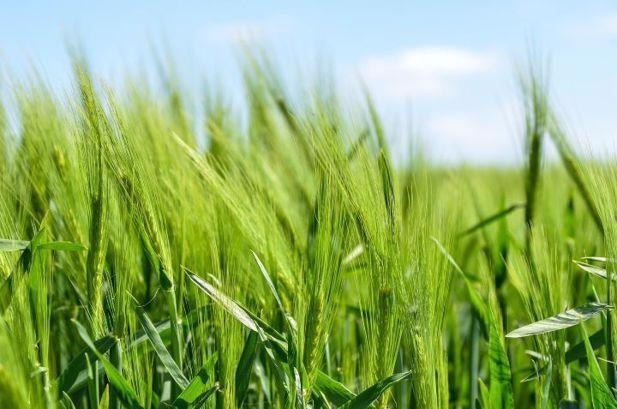Jun 25 2021
According to a new study, “precision agriculture” could provide a practical solution to the challenges that threaten global food security. Precision agriculture is a technique where farmers respond to changes in crop growth in real-time using artificial intelligence (AI) and nanotechnology.
 “Precision agriculture” could offer a practical solution to the challenges threatening global food security. Image Credit: University of Birmingham.
“Precision agriculture” could offer a practical solution to the challenges threatening global food security. Image Credit: University of Birmingham.
Increasing populations, climate change, declining soil quality and competing demands on land for biofuel production mean that it is becoming more and more difficult to feed the global population.
According to the United Nations (UN), around 840 million people would be affected by hunger by 2030. But scientists have now come up with a roadmap that combines nano-enabled and smart agriculture with AI and machine-learning capabilities that are expected to reduce this number.
An international research team, guided by the University of Birmingham, has recommended the following steps required to use AI technology to exploit the power of nanomaterials in a safe, responsible and sustainable manner. The results have recently been published in the Nature Plants journal.
- Interpret the long-term fate of nanomaterials in agricultural settings — the way nanomaterials interact with soil, roots and leaves
- Evaluate the long-term life cycle effect of nanomaterials in the agricultural ecosystem, like the effect of repeated application of nanomaterials on soils
- Adopt a systems-level strategy for nano-enabled agriculture — use the existing data on crop yield, soil quality and nutrient-use efficiency (NUE) to estimate the behavior of nanomaterials in the environment
- Use machine learning and AI to identify important properties that will regulate the behavior of nanomaterials in agricultural environments
Current estimates show nearly 690 million people are hungry - almost nine percent of the planet’s population. Finding sustainable agricultural solutions to this problem requires us to take bold new approaches and integrate knowledge from diverse fields, such as materials science and informatics. Precision agriculture, using nanotechnology and artificial intelligence, offers exciting opportunities for sustainable food production.
Iseult Lynch, Study Co-Author and Professor, Environmental Nanosciences, University of Birmingham
Professor Lynch added, “We can link existing models for nutrient cycling and crop productivity with nano informatics approaches to help both crops and soil perform better — safely, sustainably and responsibly.”
The driving force for agritech innovation is the need to feed the growing world’s population with a declining agricultural land area while preserving soil health and guarding the quality of the environment.
Agricultural intensification has led to extremely poor global NUE, posing a serious threat to environmental quality as huge amounts of nutrients are lost to air and water — warming the Earth with almost 11 % of the world’s greenhouse gas emissions emerging from agriculture.
Another major concern is the emission of nitrous oxide, the “laughing gas” caused by surplus nitrogen fertilization of land. This gas is 300 times more potent than carbon dioxide in causing global warming. The agriculture sector contributes around 70% of the anthropogenic source nitrous oxide emissions into the atmosphere.
Nano fertilizers have the ability to target crop fertility, improve NUE and cut down the emissions of nitrous oxide. These measures can thus help reach the targets of net-zero greenhouse gas emission by 2050 set under the UK Climate Change Act.
The researchers included specialists from the Hellenic Military Academy, in Vari, Greece, and Novamechanics Ltd, in Nicosia, Cyprus. They observed that nanotechnology has an excellent potential to improve agriculture in four major ways:
- Improving plant resilience and soil health
- Enhancing production rates and crop yields
- Enhancing the efficiency of resources, like fertilizer and reducing pollution
- Developing intelligent sensor plants that alert farmers on environmental stresses
Computational approaches including AI and machine learning will have a critical role in driving the progress of nano-enabled agriculture. Such approaches are already starting to gain regulatory acceptance for safety assessment of nanomaterials, allowing the development of safe-by-design nanomaterials for consumer products and medicine.
Dr Peng Zhang, Study Co-Author and Marie Skłodowska-Curie Research Fellow, University of Birmingham
Dr. Zhang further added, “Integrating AI and nanotechnology into precision agriculture will play a vital role in probing the design parameters of nanomaterials for use in fertilizer and pesticide delivery to ensure minimal impacts on soil health coupled with minimal nanomaterial residues remaining in the edible tissue portions - helping to ensure safe and sustainable agriculture.”
Journal Reference:
Zhang, P., et al. (2021) Nanotechnology and artificial intelligence to enable sustainable and precision agriculture. Nature Plants. doi.org/10.1038/s41477-021-00946-6.